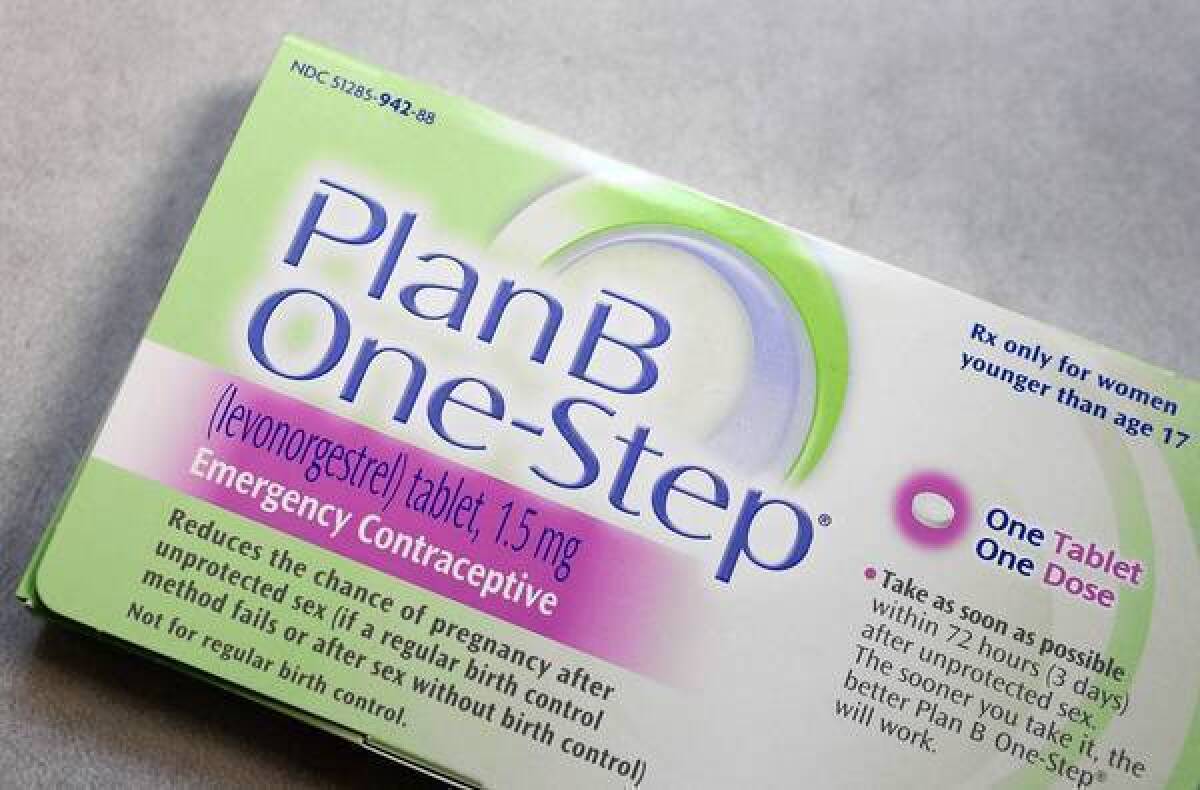The Plan B morning-after pill and the new war on abortion

- Share via
North Dakota is trying to ban all abortions. Arkansas is trying to ban them after 12 weeks. Mississippi is down to its last abortion clinic.
If you think the abortion question in this country was settled after the Supreme Court made its historic Roe vs. Wade ruling in 1973, you haven’t been paying attention. Tossing Roe was not just a plank of the 2012 Republican Party platform, it was a reliable applause line in every 2012 Republican presidential candidate’s stump speech.
Friday’s federal court ruling in New York that girls of all ages should have unrestricted access to the so-called morning-after pill to prevent pregnancy is an unvarnished victory for reproductive freedom at a time when its opponents are pushing hard in the opposite direction.
U.S. District Court Judge Edward Korman’s opinion was a vindication of sorts for folks who have been surprised, and angry, about how the Obama administration has rolled over on a number of reproductive rights issues.
Korman slammed the administration for buckling to political pressure in 2011 when it overruled the Food and Drug Administration, which had recommended all girls be able to buy the morning-after pill without a prescription. But Health and Human Services Secretary Kathleen Sebelius, a former Kansas governor and veteran of the grotesque abortion wars in that state, declared that anyone younger than 17 had to have a prescription, despite the fact that the FDA found no evidence of harm among younger users.
Corman accused Sebelius of forcing the FDA to “ride roughshod” over its own policies by insisting that girls younger than 17 have a prescription for the drug, often called Plan B.
And the president, about to face his difficult 2012 reelection campaign, took the weasely way out. During a December 2011 news conference, Obama said he did not get involved in Sebelius’ decision, but supported it even though, as he acknowledged, no one was challenging the drug’s safety.
“As the father of two daughters, I think it is important for us to make sure that we apply some common sense to various rules when it comes to over-the-counter medicine,” Obama told reporters. “And as I understand it, the reason Kathleen made this decision was she could not be confident that a 10-year-old or an 11-year-old go into a drugstore, should be able -- alongside bubble gum or batteries -- be able to buy a medication that potentially, if not used properly, could end up having an adverse effect. And I think most parents would probably feel the same way.
“When it comes to 12-year-olds or 13-year-olds, the question is can we have confidence that they would potentially use Plan B properly? And her judgment was that there was not enough evidence that this potentially could be used improperly in a way that had adverse health effects on those young people.”
That logic, the judge pointed out in his ruling, was hooey.
“This case is not about the potential misuse of Plan B by 11-year-olds,” Korman wrote. “These emergency contraceptives would be among the safest drugs sold over-the-counter, the number of 11-year-olds using these drugs is likely to be miniscule .… The invocation of the adverse effect of Plan B on 11-year-olds is an excuse to deprive the overwhelming majority of women of their right to obtain contraceptives without unjustified and burdensome restrictions.”
Though it’s easy to get all twisted up in the abortion debate, it’s important to remember that Plan B prevents most pregnancies when taken within 72 hours of intercourse. Being able to get it over-the-counter is very good news for girls.
Twitter: @robinabcarian
More to Read
Sign up for Essential California
The most important California stories and recommendations in your inbox every morning.
You may occasionally receive promotional content from the Los Angeles Times.











